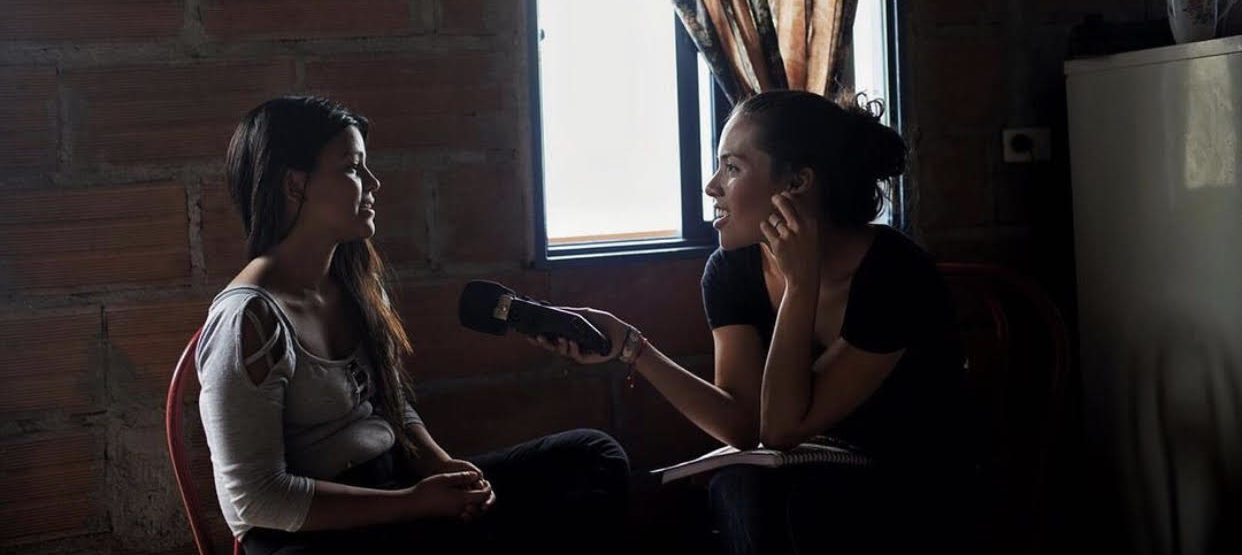Published: 02/25/2022
New Publication in Academic Medicine Highlights Stanford’s Global Health Media Fellowship as a Communications Training Model for Doctors
By Jamie Hansen
In 2011, Dr. Michele Barry, Director of the Center for Innovation in Global Health at Stanford University, established a Global Health Media Fellowship in collaboration with the chief medical correspondent at NBC News to train a generation of physicians who could provide trustworthy, factual information to the public in times of medical crisis.
Since then, two major global health challenges have underscored the vital need for effective medical communicators. In 2014, the Ebola outbreak in West Africa was sensationalized by cable news anchors and social media influencers in the absence of clear and readily available information from trusted medical experts. This led to knee-jerk travel bans, a wave of xenophobia, and public panic.
Now, during the COVID-19 pandemic, millions of people have opted not to be vaccinated, swayed by anti-vaccine misinformation and falsehoods. Many of them lost their lives as a result: The Kaiser Family Foundation estimated that 163,000 U.S. deaths from COVID-19 between June and November 2021 could have been prevented with vaccines.
“The pandemic, quite brutally, has underscored what we knew to be true a decade ago. Bad messaging of information costs lives. Each of us as doctors has a role to play in making science more understandable and accessible in order to influence health behaviors.”
Dr. Michele Barry, Director of Stanford’s Center for Innovation in Global Health
“The pandemic, quite brutally, has underscored what we knew to be true a decade ago,” said Barry. “Bad messaging of information costs lives. Each of us as doctors has a role to play in making science more understandable and accessible in order to influence health behaviors.”
A new publication in the journal Academic Medicine shines a light on one proven strategy for empowering doctors to become more effective communicators: Training and practice in the fundamentals of ethical journalism and storytelling.
“Training the Next Generation of Physician Communicators: Fighting Health Misinformation in the 21st Century” was published Feb. 25 as an online pre-print. It reviews the Stanford Global Health Media Fellowship as a leading model for training physician-communicators and encourages medical schools worldwide to develop similar programs.
The Global Health Media Fellowship enables one medical school student per year to master the principles of storytelling and medical journalism through one semester with Stanford’s Journalism Program and an intensive internship with Dr. Sanjay Gupta at CNN. To date, the program has produced 10 skilled communicators with medical training. These alumni of the fellowship, most of them doctors, now convey medical insights and expertise through compelling television interviews, engaging blogs, and powerful op-eds.
Dr. Kristina Krohn, assistant professor of medicine and pediatrics at the University of Minnesota, lead author, and an alumna of the fellowship, said such training is critical to helping doctors bridge the gap between medical school and the realities and concerns of their patients. While physicians are frequently ranked as the second most trusted profession in the U.S., many struggle to shed their academic training and language to communicate effectively with a general audience.
“As doctors we have access to the best medical information, but if we don’t learn to communicate and tell stories, it doesn’t matter if we think we’re right,” she said. “It doesn’t matter because it doesn’t reach anyone.”
“We have to take this life-saving information out of silos and put it where it’s easy to access, where people are looking for it.”
Dr. Kristina Krohn, MD, alumna of the Global Health Media Fellowship and lead author on a recent publication about the fellowship.
The article encourages medical schools to partner with their schools of journalism and communication to offer training to medical students, either as stand alone fellowships or courses incorporated into medical school. In either case, giving physicians lots of opportunities to safely practice their skills and gain confidence communicating over public platforms is key.
The more doctors are trained in communications, the more equitable public health outcomes will be, Krohn said. A person skeptical of “mainstream media” or television doctors might be swayed by the vaccine safety message they see shared by a community doctor as a social media post or op-ed in the local newspaper.
“We have to take this life-saving information out of silos and put it where it’s easy to access, where people are looking for it,” Krohn said.
Full authorship of the paper is as follows: Krohn, Kristina M. MD; Yu, Gina MD; Lieber, Mark MD; Barry, Michele MD
